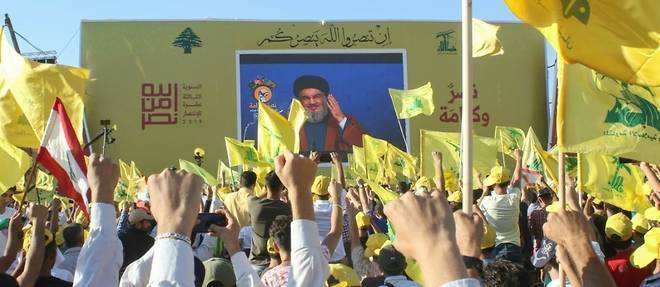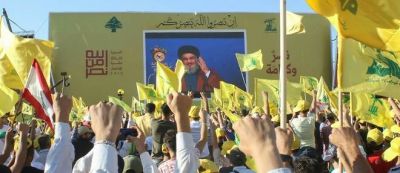
Hezbollah is a key player in the trafficking of Captagon produced in Syria, which floods the Saudi market. (Credit: Archival photo Mahmoud Zayyat / AFP)
For years, the US Drug Enforcement Agency (DEA) and Israeli intelligence agency Mossad conducted extensive investigations into Hezbollah’s alleged involvement in drug trafficking, arms dealing and money laundering. These investigations involved undercover operations, handling large sums of money and identifying key figures involved in these illicit activities across multiple countries, from Colombia to Iran.
However, all their efforts were reportedly in vain as the Obama administration allegedly made the decision to terminate the investigation in order to avoid jeopardizing relations with Iran and to uphold the Iran nuclear deal signed in 2015.
Arabic-speaking viewers can now watch the story via The Cassandra Prophecy, an Israeli-directed three-part documentary available on the Saudi video-on-demand platform Shahid, owned by the MBC television group.
Produced and directed by Israeli filmmaker Duki Dror, the series is presented in English with Arabic subtitles. With a clear approach, the documentary raises the question: “What is the true cost of the nuclear deal?”
Ambiguity toward Israel
The broadcast of the documentary on a Saudi media platform, shedding light on Mossad activities and raising questions about Iran’s nuclear program, carries significant implications. It represents Saudi Arabia’s delicate balancing act between Israel and Iran amidst ongoing regional efforts to foster détente.
While the issue of normalization with Israel is gaining momentum, particularly with US President Joe Biden prioritizing it ahead of the 2024 US elections, Riyadh is purposefully maintaining ambiguity to negotiate this politically sensitive agreement at a high cost.
Riyadh has set conditions for US aid, including the development of a civilian nuclear program and the establishment of a Palestinian state, which are currently viewed as unrealistic demands.
Simultaneously, the kingdom is demonstrating signs of openness toward Israel, such as opening its airspace to Israeli aircraft and revising content related to Jews in school textbooks.
Behind the scenes, the two countries are engaging in intelligence and security cooperation.
Captagon
The situation regarding Iran is indeed intricate. The détente agreement reached in Beijing on March 10 has yielded more diplomatic outcomes than tangible advancements on regional matters.
While Tehran maintains a stronger position in the geopolitical landscape, Saudi Arabia has pursued normalization with Syria and supported its readmission to the Arab League, extending significant political benefits to both pariah states in the hope of securing concessions in return.
Beyond seeking regional stability, one of Riyadh’s key priorities is to combat the trafficking of the amphetamine Captagon, predominantly controlled by the Syrian regime and causing significant harm in Saudi Arabia.
Is fighting Captagon trafficking more realistic than reducing Iran’s influence in the region?
In any case, the fight against drugs dominated the headlines in Arab News last week.
As well as a feature on a drug rehabilitation program in Saudi Arabia, Arab News unveiled its new video documentary Abu Hilalain: Inside the Kingdom’s Crackdown on Captagon.
The documentary is the result of a 14-month investigation, part of which focuses on the Bekaa Valley, an area where Hezbollah has a prominent presence and is considered a key player in Captagon trafficking in the Middle East.
This article was originally published in French in L'Orient-Le Jour. Translation by Sahar Ghoussoub.
